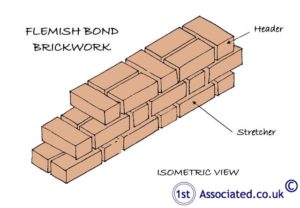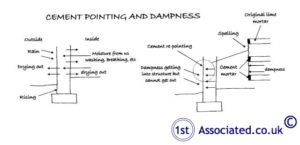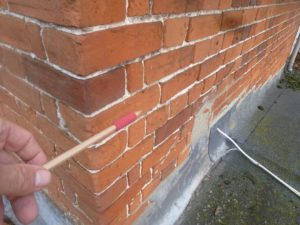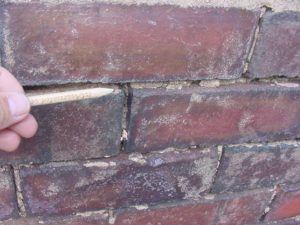Buying a Victorian Home and Lime Plaster
Victorian properties were generally built with Flemish bond brickwork, which would have been pointed with lime mortar. Over time the use of cement mortar became popular and many Victorian houses were repointed with cement mortar.
mortar. Over time the use of cement mortar became popular and many Victorian houses were repointed with cement mortar.
The use of lime mortar on Victorian properties
Flemish bond bricks are a soft brick and the use of lime mortar, which is also a softer, more pliable substance, allows any penetrating dampness/water to dissipate out through the bricks. Cement mortar is a much harder, more brittle mortar. It prevents the walls from 'breathing'/being water vapour porous meaning that dampness may occur in your Victorian house, plus it often causes the face of the Flemish bond bricks to spall.
The solution is to remove the cement mortar and replace it with lime mortar. This is a slow process which will take a long time, carried out over the warmer/summer months. Often you will find the cement mortar will fall out over time as it is a brittle susbstance. We would always recommend you find the oldest, most experienced bricklayer you can, who has years of experience working with lime mortar, as they will better understand the use of lime on a Victorian building.

We're open for business
Free Phone 0800 298 5424


Always have a Building Survey when buying a property
When considering buying a property, be it an older period house, or even a newer house, you should always have a full structural survey, carried out by a Chartered Surveyor who is independent. Being independent means they are not affiliated to any bank, building society or estate agency and therefore work solely for you, with only your best interests at heart.
Our Chartered Surveyors use the latest equipment, including drones for aerial photography to view and comment upon parts of the property it would normally be impossible to view and damp proof meters to see if the building has any rising or lateral dampness.
We always recommend you meet the Surveyor at the property during the survey, so they can explain the survey process and answer any questions you may have regarding the property. Remember: 'caveat emptor', which means buyer beware.

